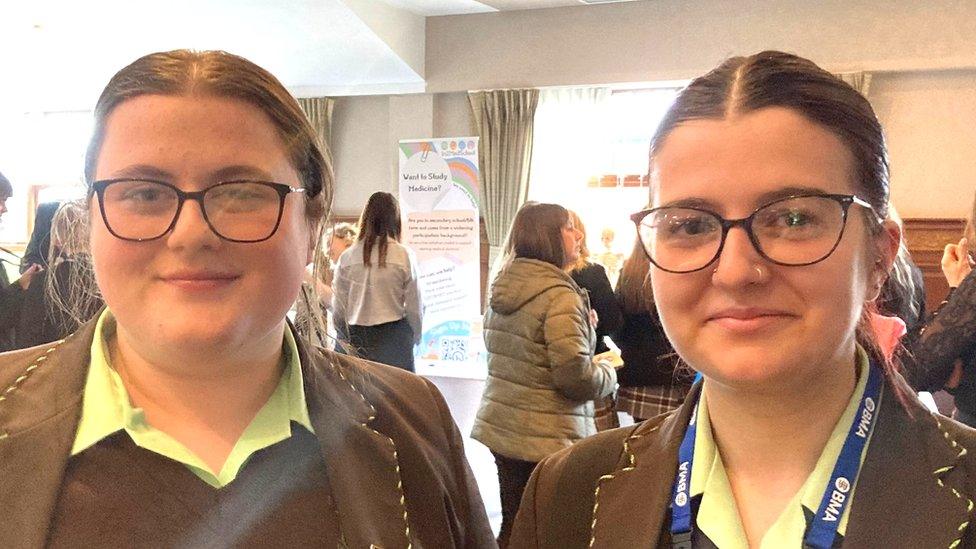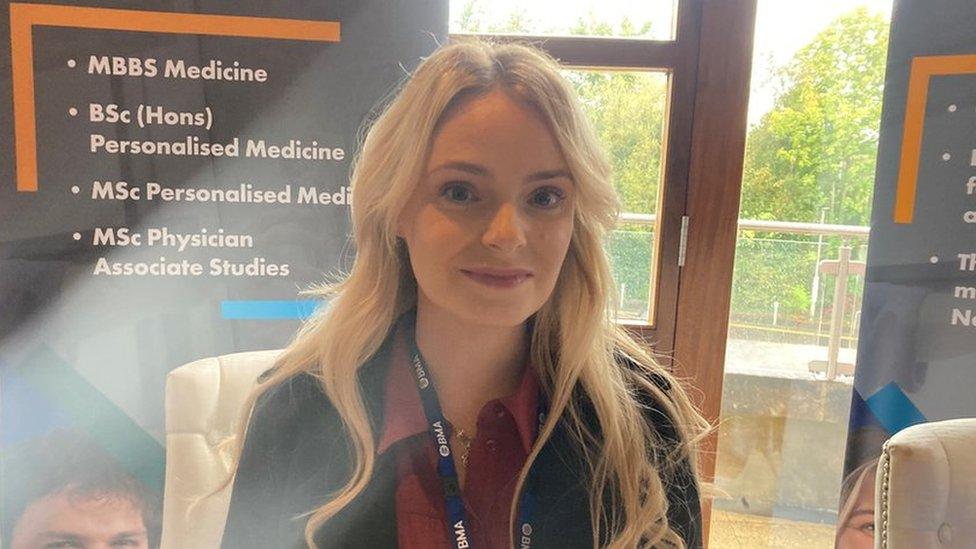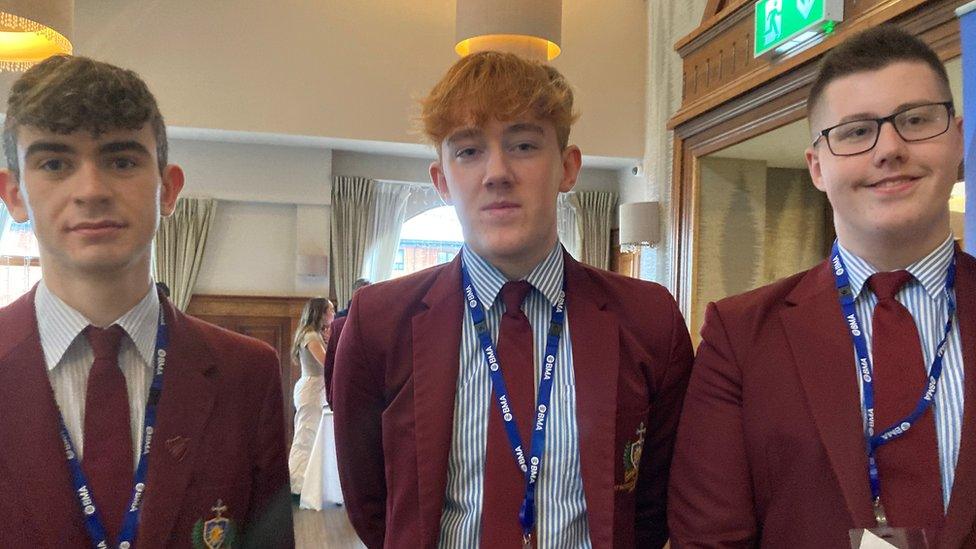How do you inspire more secondary school pupils to become doctors?
- Published

Leah and Meghan attend St Louise's on Belfast's Upper Falls Road, where there is a high level of social deprivation
How do you inspire more kids from secondary schools to become doctors?
That's the uphill battle the British Medical Association (BMA) is hoping to conquer.
In 2012 a study found that in Northern Ireland more than 90% of medical students came from grammar schools.
The BMA has held an event in Belfast for secondary school pupils to meet doctors from a range of backgrounds, keen to stress that there are many different paths into medicine.
Leah, 17, and Meghan, 16, from St Louise's College in west Belfast, attended the event.
Meghan is the first person in her family to consider a career in medicine.
"It's about having the motivation to go for it even though you don't know anyone around you who's done it, that's a challenge," Leah told BBC News NI.
"But if you really want to do it you have to put the work in and get the grades."
She believes it is important for doctors and medical professionals to reflect society.
"Knowing that there could be people here who understand who you are and where you come from, it would be reassuring that you wouldn't feel like you were being looked down on," she added.
Dr Tom Black, chairman of the BMA in Northern Ireland, agrees, saying that medical professionals should reflect the society they serve.

Eimear MacSiacais, 32, says people like her from working-class backgrounds have to overcome barriers to pursue a career in medicine
"It's explaining to the pupils from these schools that don't normally send pupils to medical school that there is the opportunity there," he said.
"Obviously you have to work hard and get the grades but that medical school is for everyone and not just those from advantageous backgrounds.
"This is for everybody and our speakers have all been young doctors and medical students who have come from diverse backgrounds, who didn't go straight into medical school, who maybe went off and had their family first or went off and did a different degree at university and have found their way into medicine."
'It's a traditional thing'
At 32 years old, second-year medical student Eimear MacSiacais took a different route into medicine.
She had three young children by the time she was in her mid-20s.
It was only when she was studying human biology at Queen's University Belfast that she realised she wanted to become a doctor, and she is now on her second degree.
"Traditionally medics were middle-class, children of professionals, children of doctors - I'd never even met a doctor in my life, only in a professional capacity," said Eimear.
"It just was not on my horizon at all."
She believes pupils in secondary schools need to be told medicine is an option for them.
"They're not told they're able to do this. They're told: 'It's too hard, its not for you.'
"It's also down to parents, it's down to society, it's down to community leaders to support them to be able to make those decisions."

Christopher, Aaron and Darragh travelled from south Armagh to learn more about medical careers
Barriers were breaking down, she added, but the expense of a long medical degree remained an issue - with fees of about £4,700 a year for the first four years for students in Northern Ireland.
Subsequent years are paid for by the Department of Health.
For Darragh, Aaron and Christopher, who are all in their last year of A-levels at St Patrick's High School in Keady, County Armagh, the fees are a worry but they say it would be the same for any degree.
Christopher's grandparents were both nurses and he has always considered a career in the medical profession. He says the support of his school has been essential.
"Our school has the best careers department about, they sorted us with work experience at the Royal Victoria Hospital in Belfast," he said.
"If I can get the grades and if our school can get me there, I'll do it."
- Published4 October 2016

- Published11 October 2017
